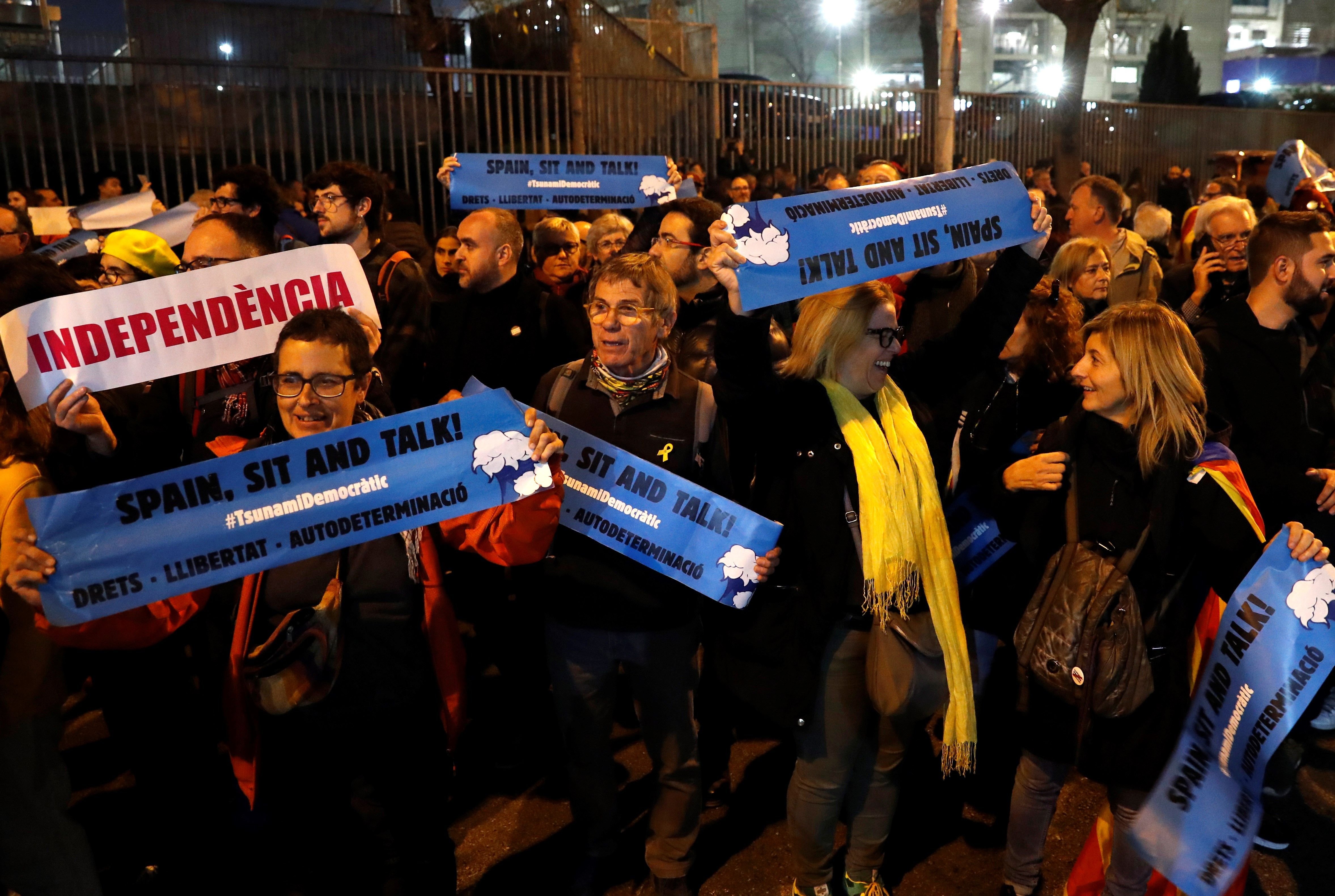Fissures in the judicial persecution of the Catalan independence movement. The criminal chamber of Spain's National Audience has ordered the judge in charge of its court number 6, Manuel García Castellón, to give better "reasons" if he has to once again extend the period of secrecy granted to his investigation into the anonymous organizers of the pro-independence protest platform Tsunami Democràtic, which he has maintained since October 2019, when the social media-centred platform successfully sparked major mobilizations against the Supreme Court's jailing of the Catalan political prisoners for sedition. With this decision, the court ruled partially in favor of businessperson Oriol Soler, investigated in the case and defended by lawyer Benet Salellas, who asked for the secrecy to be lifted. The court admits that the latest resolution on extending the confidentiality of the court's inquiry "is scanty and wanting in its basis". The resolution, dated December 9th, overlapped with the judge's order to extend the secrecy of the Tsunami case until January 11th, 2023. In this case, the resolution was signed by a substitute judge, Joaquín Elías Gadea. Thus, it will be from January that García Castellón will have to give reasons for keeping this investigation secret, if he extends it again. And if not, the National Audience can force him to lift the secrecy.
The court already pulled up judge García Castellón in November 2021, and allowed Oriol Soler to make appeals over the case even though it was secret. The businessperson was arrested along with twenty other people in a Civil Guard operation which has become known as the Volhov case two years ago, based on Civil Guard assertions of illegal mechanisms used to finance the Catalan independence movement. García Castellón, from the higher National Audience, called on the judge of the regular Barcelona court who approved the Volhov operation to pass to his court the section of it linked to the Tsunami Democràtic, which supposedly included a dozen defendants, such as the former Catalan government minister, Xavier Vendrell (ERC), and the businessperson and ex-party politician David Madí (CDC). Soler has presented a total of seven appeals to demand an end to the secrecy of the investigation, which is being extended month by month. In this new request, Salellas asked the National Audience to lift the secrecy in order to guarantee Soler's right to defence in the face of the long period of time that had elapsed, or alternatively to order the judge to justify the reason for keeping the case secret, as he will have to do from January.
Investigation abroad
In the most recent and long-awaited resolution on the maintenance of secrecy in the case, which was decided on December 7th, a substitute judge, Joaquín Elías, gives generic justifications. He maintains that it is "essential" to maintain the secrecy to guarantee "the protection of the investigation" and once lifted, the defence will be able to access all the documentation. He adds that a large part of the pending actions are carried out "outside Spanish territory", and require "longer periods of time to carry out", and that the result "could lead to the carrying out of new investigations".
Thus, in a subsequent resolution, two days later on December 9th, Section Three of the criminal chamber of the National Audience orders the Tsunami investigation judge that "if he wishes to maintain the secrecy of the proceedings in the future, he must issue a new resolution in which the reason for the need to continue maintaining the secrecy of the actions at present is explained, with sufficient reasoning that justifies such need, and that validates the possible effects on the fundamental right of defence of those under investigation, which are in conflict with the long delay in the secret investigation”.
Judge was corrected over CDR case
In addition to the Tsunami Democràtic case, judge García Castellón has also been pulled up three times by the National Audience for failing to guarantee the right of defence to members of the group of Catalan activists investigated for alleged terrorist offences, connected to different CDR (Committee for Defence of the Referendum) groups. The last correction in this regard was when the National Audience reopened the investigation stage of the process, at the request of the defence, and with the approval of the public prosecutor, because there was evidence which had not been heard - specifically, the testimony from the Civil Guard officers who conducted the investigation. The judge was already sending the activists to trial.

